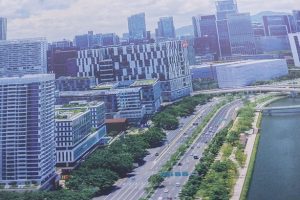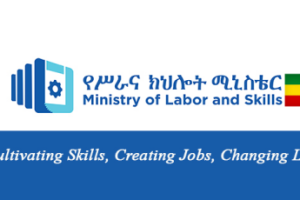
Today’s guest is Negash Teklu, Executive Director of the Population, Health, and Environment (PHE) Ethiopia Consortium. Negash who is an MA holder in International Relations from Amsterdam University, Netherlands has served widely in governmental and non-governmental organizations.
Formerly, Negash was fully involved in establishing and managing the prominent national private news agency, Walta Information Center. He was also a member of the Federal Democratic Republic of Ethiopia (FDRE) Parliament and standing committee member, from 1995-1999.
Before serving as a member of the Parliament, he was a member of the Tigray People Liberation Front (TPLF) and EPRDF from 1975 to 2007. As an Executive Director of PHE Ethiopia Consortium, Negash represented the organization in COP meetings since COP15, respectively and Rio+20, in 2012, and the ICPD Human Rights beyond 2014 Conference at the Netherlands in 2013 and ICPD+25 in Nairobi in Nov 2019 and the SDG HLPF in 2018. In addition, he has also attended and presented in all the different International Family Planning Conferences.
His organization has a strong partnership locally with government line ministries, regions and partner development practitioners and with international organizations like the Packard Foundation, DFID, EU, PRB, WWC, PSN, PAI, and Lake Victoria Basin Commission (LVBC).
He is also a member of the international alliance, Population for Sustainable Development Alliance (PSDA), CAN, and the African PHE Network. He was also the Chairperson of the Ethiopia Federal Charities and Societies Forum, and the now the Ethiopian Civil Society Forum from 2013 to 2018.
Moreover, he is a member of a Climate Resilient Green Economy (CRGE) Facility Advisory Board and he was also a vice-chair of the UN Women Ethiopian Advisory Group. He has contributed as a research team member on different briefs, like: “Community Based Biofuel Development and Environment Rehabilitation in Ethiopia: The case of Bati in Amhara Region”, “On the Role of the Floriculture Sector in Empowering Women Ethiopia”, in 2013, “Climate change impacts on pastoral women in Ethiopia: some evidences from the Southern lowlands” 2013, “Effectiveness of the PHE approach for achieving family planning and fertility outcomes in Ethiopia” January 2013. And he contributed a book entitled “The Demographic Transition and Development in Africa”.
Cognizant of his ample contributions and experiences, The Ethiopian Herald approached him to share them for its readers. Excerpts:
Herald: Would you brief us the mission of Population, Health, and Environment (PHE) Ethiopia?
Negash: From the outset, Population, Health, and Environment (PHE) Ethiopia was initiated with the purpose of contributing to sustainable development in Ethiopia by promoting and enhancing the integration of population, health, and the environment through multi-sectoral approaches. Through these approaches, we have effectively been contributing to the entire community development by advocating for multi sectoral coordination and ensuring sustainable use of resources, resilient ecosystems, sustainable livelihoods, and a healthy population.
Herald: Which target community you are addressing?
Negash: The PHEEC was established to contribute to the people of the world, Africa and Ethiopia in general. Nevertheless, since our intention is to make a better contribution to the community where poverty is prevalent, we often give special focus for some areas where population pressure is causing environmental degradation that affects the livelihood of the society. As a result, protected wildlife and biosphere, wetland, forest, upper catchment of basin areas are our main focus areas. For instance, in the last 12 years, our major intervention areas are protected areas like Seimen Mountain, Awash National Park, Bale Mountains National Park, Abijatta-Shalla National Park,Senkele Sanctuary and forest areas include Bale eco-region, South West Land Scape and the Rift Valley areas are some of the areas that got our high attention in particular in partnership with our members and partners.
Herald: Why those areas have received your special attention?
Negash: Those areas are where population pressure has been contributing to land degradation and deforestation with high impact of poverty. The value of the ecosystem was highly affected due to population and free grazing induced pressure acting on those areas.
Herald: How do you measure your contribution since the establishment of the organization?
Negash: From our three phases of a strategic development plan in the last 12 years, we have realized a number of positive changes (improvements). For instance, at the initial stage, we were having intervention at the woreda (district) level. But, in the last six or seven years, our intervention has developed to higher ecosystem landscape areas as well as from project-level intervention to program-level intervention. Even the scope of our area and the size of the population have been trying to reach are widening. These achievements are not only due to our endeavor but also due to the support of our development partners. Along with these development partners, we have been addressing communities’ multifaceted problems in an integrated manner. As a result, there has been big progress and change at the household, watershed and the landscape level.
Herald: What are the secret of your success and other development partners can learn from you? And should be scaled elsewhere?
Negash: There is a big change in reducing the poverty level at the household; because our main intervention level is addressing the multifaceted household problems in an integrated and multi-sectoral level. We do not have an intervention on single based; for instance, only health, only education, or livelihood but we tried to have intervention in an integrated way with their active participation and ownership. By ensuring food security at the household level, they began supplying to markets. They can support their children to go to school. They began supporting their livelihood not only for one year but also for more than three years at least. Because of these and similar changes, we have practically shown signs of progress in the livelihood of the community.
In connection to this, we have seen a considerable improvement in environmental rehabilitation. Highly degraded areas have been rehabilitated starting from the household backyard where the household is improving their farm area productivity. As a result, there are several success stories where wetlands have been rehabilitated. For instance, in the Illubabor Zone, Witchi wetland area that was highly degraded have been restored. In this zone, the Yayu Biosphere reserve is one of the largest remnant Afromontane rainforests in Ethiopia which covers about 167,021 hectares of land. It is part of the Eastern Afromontane biodiversity hotspot with about 450 higher plant species, 50 mammals, 200 birds and 20 amphibian species of all habitat types. It is registered by UNESCO in 2010 as an important world Forest Coffee Biosphere Reserve Site.
In partnership with different partners we have developed the Management Plan for the Biosphere for ten years starting 2018. In Dedo woreda, Jima Zone, watershed management and tree-based forest land restoration with a focus on indigenous species have been implemented with the promotion of biological soil and water conservation. This was promoted at the farmland of the individual smallholder farmers to reduce soil erosion and improve productivity.
As a result, we have seen a change in policy. Because of the intervention, we had in Seimen Park and Awash National Park; significant changes became evident because we intervened in these protected areas. This has influenced the Ethiopian Wildlife Conservation Authority to realize the best way to sustain the protected area can be possible by the engaging community as part of the solution. Learning from the results of our approach, the ministerial council declared the importance of implementing a shared management regulation for seven protected areas.

Herald: As a development partner, how is your contribution to government policies and strategies? How much of your objectives are interrelated with government policies?How are donors supporting you?
Negash: We have prudent relations with government institutions almost at all levels. Our objectives are inextricably interwoven with government policies and strategies. In all our organizational strategies we are highly aligned and committed for the SDGs, Agenda 2063, GTPs, CRGE, ministry strategy and regional strategies. We have been accomplishing those achievements with the partnership and support of the government. Besides our development partners, we have also been working with government institutions starting from the kebele to federal level. For instance, we work with 32 kebele’s, 16 woredas, three zones, and with the region in the Bale Ecoregion. And at the Federal level: the Ministry of Agriculture and Ministry of Water, Irrigation and Energy, Environment, Forest and Climate Change Commission, MOH, MoWCY, EWCA and the Biodiversity Institute are working with us.
Cognizant of our achievements, the European Union has continued to support us for five of us (the Farm Africa, Frankfurt Zoological Society, SOS SAHEL, International Water Management Institute, and PHEEC) in the coming 5 years. SIDA is funding us for similar actions in Central Rift Valley area for the coming four years. Packard Foundation is also supporting us in South West Ethiopia. In addition, CSSP II is supporting with our five members on Environment right activities in five regions of Amhara, Oromia, SNNP, Tigray and Afar.
Herald: We are now in the midst of the COVID-19 pandemic which is affecting every sector. It can also disrupt the health and development system you are pursuing. How do you see the threat it can pose to your development activities? How do you measure its impact on the environment?
Negash: It is indisputable fact that the COVID-19 is a big threat to our development, community, economy; and to our very existence. The reason is, it is threatening human beings. Without the existence of human beings, the existence of our planet is worthless. COVID-19 is a big threat to the entire ecosystem.
On the contrary, though it has damaging consequences on the ecosystem in general, COVID-19 has a positive contribution to the environment in particular. The climate emission impact we have in the world, by the human consumption, is now declining as the emissions from cars, industries and manufacturing are drastically reduced. But, despite this the general contribution is negative as it is disrupting healthy production process.
Herald: Would you recommend some possible solutions for the problems in the world and Ethiopia, due to the COVID-19? How can we reduce its consequences?
Negash: The possible way to curb the consequences of this pandemic is to correct the widespread injustice across our planet. The prevailing injustice in different parts of our world makes human being susceptible to the virus. There is injustice in development, consumption and in every system. Take America now, the most disadvantaged group are dying of the virus. In Chicago, the majority who are dying are poor black people.
In Ethiopia, so far we have identified 71 infected individuals. I believe, had we started the precautionary measures earlier, we could have reduced this number and minimized the scope of its spread. The recent declaration of the State of Emergency is the right decision of the government; we need to maintain that but at the same time, we need to prepare ourselves to work hard so that we can minimize the possible loss our social existence and economy would incur.
The civil society must support the government’s initiations aggressively in controlling the COVID-19. The poor, the disadvantaged ought to get proper focus during this pandemic. Meanwhile, we must not tie our hand and sit instead we need to aggressively carry out the joint CSO role in the campaign to control the virus through partnering with community and government, of course with all the necessary precautions. Our advocacy and watch dog role should be also strengthened.
The Ethiopian Herald April 14/2020
BY WAKUMA KUDAMA




